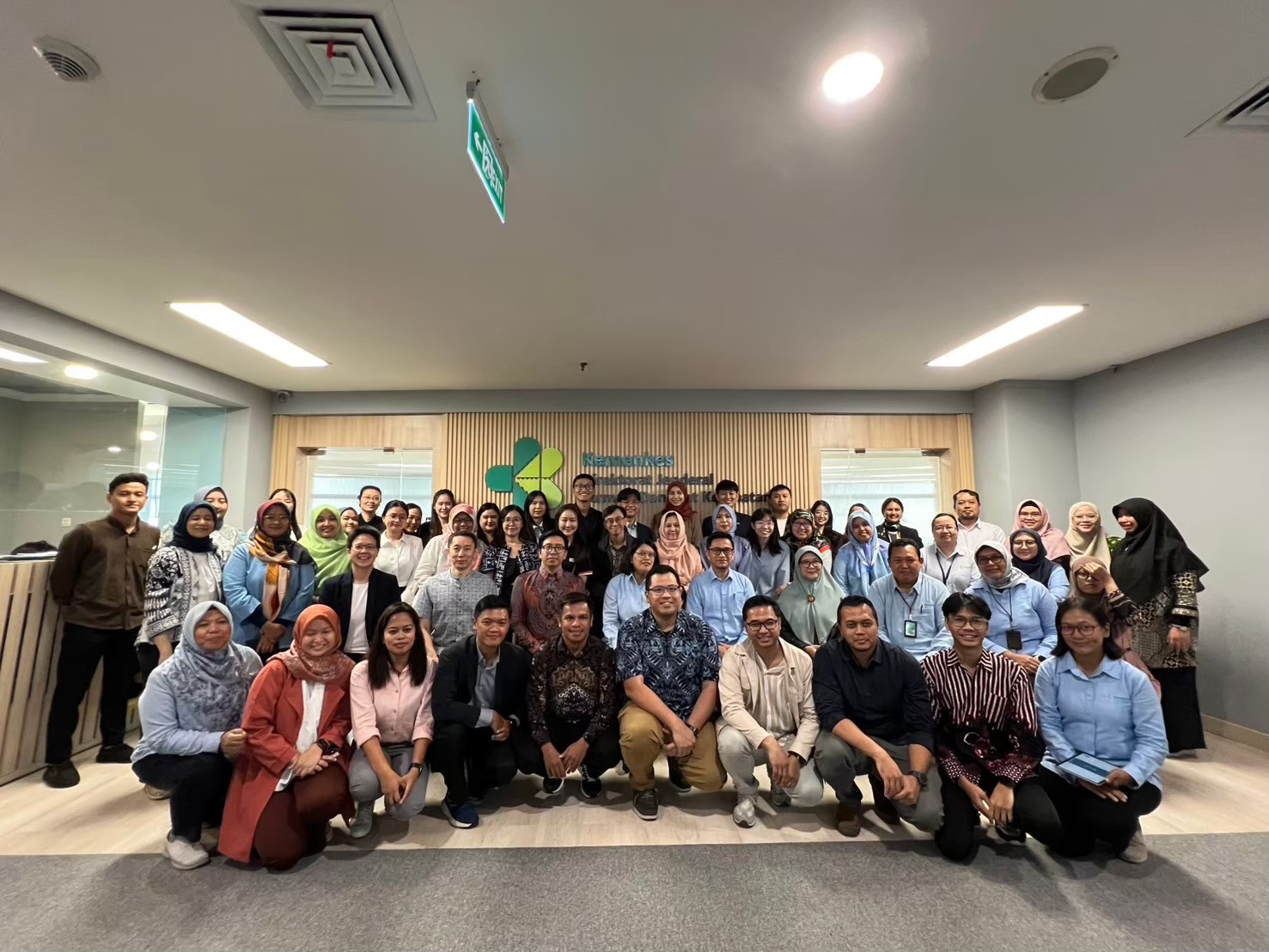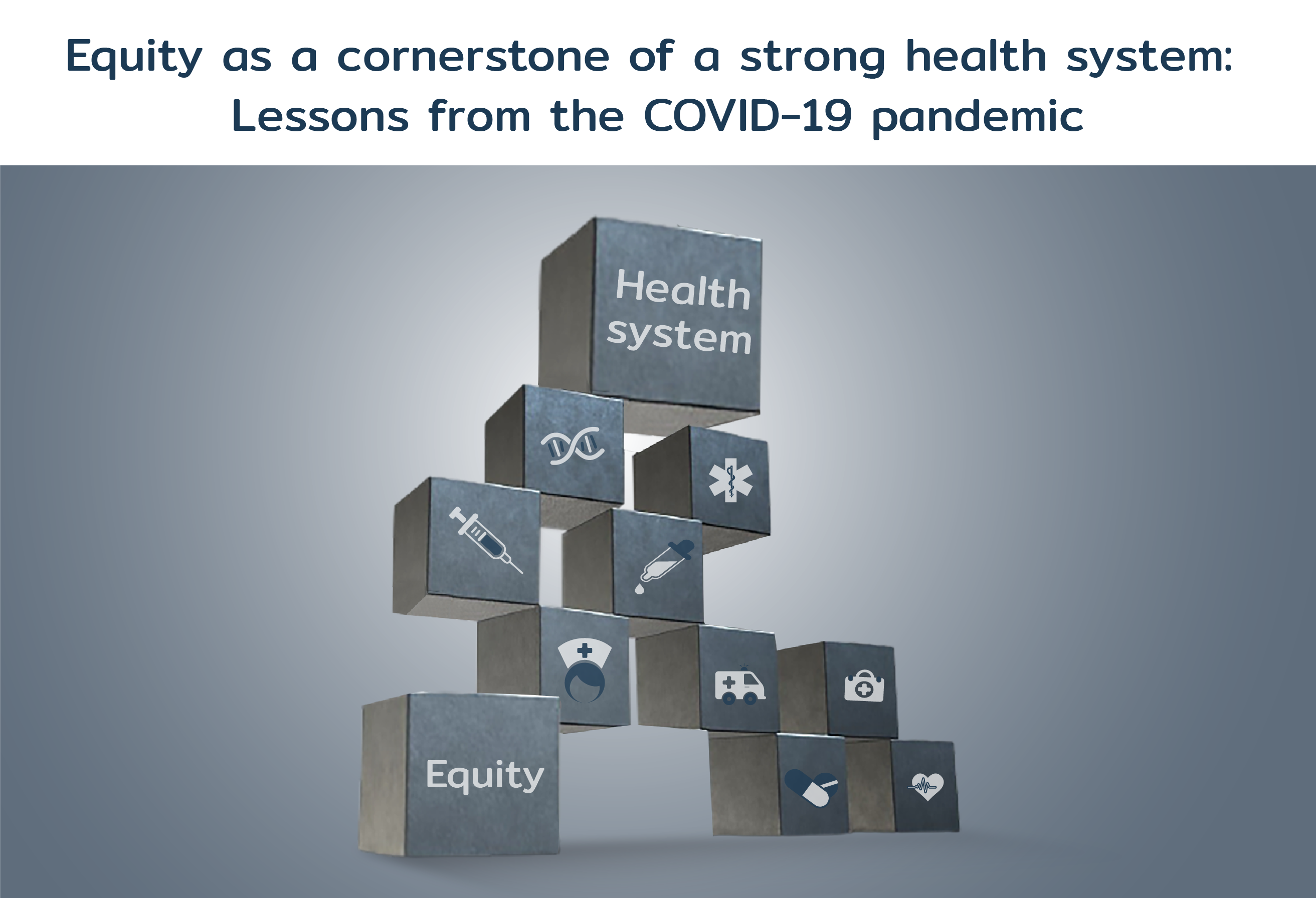[PRESS RELEASE] Cross-Border Insights into Lao PDR’s Evidence-Informed Health Policy with HTA: First-Ever Study Maps the Way Forward




As we approach the end of an unprecedented year, the approval of select COVID-19 vaccines by stringent regulatory authorities and programmatic roll-out has been cause for optimism. However, it is imperative to assure equitable access to those in need in all regions of the world as a core component of the global vaccination effort. On a global scale, this would mean that resource-rich and poor countries would be able to equitably procure these scarce life-saving tools for their populations, irrespective of the role played by market forces. The pandemic has been important in re-emphasizing the role of equity from its onset, with social and economic inequities resulting in disproportionate risk and impact of the disease. For instance, chronic lack of access to healthcare, prior to the pandemic, has resulted in populations living with “pre-existing conditions” being much more vulnerable to the most serious consequence of this novel infection. Existing systemic inequities have been exposed by the current crisis and extend beyond immediate healthcare provision, with impacts on education, nutrition, and gender, among others.
To further examine these issues, FHI 360, the Japan International Cooperation Agency (JICA), Mahidol University, the Global Fund to Fight AIDS, Tuberculosis, and Malaria and the Health Intervention and Technology Assessment Program (HITAP) came together to host a webinar titled “Assuring Equitable Access to COVID-19 Vaccines, Treatments, & Health Resources”, as part of the virtual Prince Mahidol Award Conference (PMAC) 2021. Experts from diverse subject areas including global and country level priority-setting for a potential COVID-19 vaccine distribution and evidence-informed health systems response highlighted the role of equity as a cornerstone of the current pandemic response and more significantly, in re-examining our health systems in a post-pandemic world. Through this session, we learned that it is imperative for global action to be contextualized to local needs and the importance of nutrition and education to remain on the agenda to address a health crisis. Here, we provide an overview of these discussions and also identify some pertinent questions towards pursuing these goals.
Importance of solidarity and global collaboration
Distributional inequities in COVID-19 vaccines and treatments could lead to a prolonged global pandemic, emphasized Dr. Nzisa Liku, who presented on behalf of Dr. Mercy Mwangangi from the Ministry of Health in Kenya. Speakers agreed that in parallel with scientific progress on a vaccine, there is an important need to learn from past mistakes in diseases such as the 2009 pandemic flu when Africa was the last to receive the seasonal vaccines, months after the disease had been contained in other regions of the world. The Access to COVID-19 Tools (ACT) Accelerator and the COVAX facilities are examples of some frameworks to help low- and middle-income countries (LMICs) from being left behind in the current crisis. However, there is a need for global collaboration in supporting resource poor countries to develop these treatments, participate in new research and receive technical support in their own progress towards addressing disease burdens. “Rich” countries must view this pandemic as an opportunity to redesign some existing systems to ensure more joint development and equitable procurement strategies and come together in building scientific and social infrastructure for a cleaner, healthier planet overall.
Contextualizing global policy action to country requirements
One of the most tragic outcomes of this pandemic has been the shortage of essential health resources such as ventilators, oxygen systems and other intensive care equipment. As the number of severe infections rise and demand for emergency infrastructure rapidly outstrips supply, doctors have been forced to make triage decisions on rationing available equipment. These decisions have been especially difficult for healthcare providers, who have often had to “play God” in these scenarios and for families who have had to accept these decisions. These challenges have been especially pronounced in LMICs where there is significantly less of this infrastructure in place. In supporting health practitioners allocate these scarce resources, an evidence-informed approach can be most beneficial to the health system and society when designed to said context. For instance, Dr. Supakit Sirilak from the Thailand Ministry of Public Health and Ms. Kanchanok Sirisorn from HITAP spoke to the design of guidelines for Thailand to allocate scarce resources, recognizing the importance of multi-stakeholder consultation and ensuring that societal beliefs of ethics and equity are suitable to the Thai context. The definitions of ethics in these delicate decisions are sensitive to context and a collaborative approach to understand them must be employed in responding to our current crisis, but also offer insight into how we design national health policies beyond the immediate issues of health provision during the pandemic alone.
This narrative was also applicable to national vaccine prioritization guidelines, echoed by Dr. Nzisa Liku from Kenya. As countries prepare their systems to begin rolling-out their first batch of COVID-19 vaccines, there is an urgent need to ensure that vaccine priority groups are determined to ensure maximum societal benefit. Globally, health care providers will be the among the top priority groups given their essential role in mitigating the impact of the disease. However, the groups to follow will need to be based on contextual specifications, such as incidence of and susceptibility to disease, demography and transmission, social vulnerability, economic requirements, and other factors. For instance, some tourism-reliant countries in Africa argue that this sector is the lifeline and those employed in it must be the first supported, while others argue that it must be the elderly who are most at risk of mortality. In countries like Thailand, early research supports prioritizing young people for vaccinations as this age group is most likely to socialize and hence at high risk of transmitting to others. In other cases, especially in LMICs, the definition of a health care provider must be guided by regional definitions and extend to all providers, formal and informal, including food and environmental service workers, who are exposed in clinical care facilities.
Nutrition as a forgotten pillar of the health system
The intersectionality between the issues of education, nutrition and public health have been well documented, but often forgotten. Addressing these overlaps, Dr. Purnima Menon from the International Food Policy Research Institute (IFPRI) in India discussed the ‘missed opportunities’ in equitable nutrition access through the public health system across the world. Particularly citing these challenges in LMICs such as India, she argued that disassociating nutrition from health is a grave mistake which can result in intergenerational impacts, much beyond the current pandemic. Nutrition also forms an integral part of the education system, in high- and low-income countries where many marginalized communities rely on school meals to provide for young children whose first 1000 days from conception to age 2 years are most critical to development. The role of nutrition in routine systems of education and health is important to an entire ecosystem, impacts of which will be understood in the years after the pandemic as current data remains minimal, with severe negative impacts seen through increases in hunger and obesity, early marriages from school dropouts, among others. These inequalities underscore the importance of developing a uniformly healthy population before a pandemic, as we prepare for the future.
Questions to be further explored
As Prof. Helen Rees from the University of Witwatersrand said in her conclusion, we are all facing a similar contest but in different contexts, requiring that we walk away from it with an understanding that we are better together in our progress towards the Sustainable Development Goals (SDGs) covering 2015-2030. The issues of growing nationalism, scientific communication failures and anti-vaccine sentiments will impede our efforts to emerge from this current crisis. More importantly, it will do little to help us prepare for the next ones. Larger concerns of inequity displayed by the current pandemic such as the absence of essential health services and inadequate routine vaccine programs in many parts of the world will continue long after we address the pandemic. For instance, we have been able to marshal the human and financial resources towards developing COVID-19 vaccines while many diseases remain neglected with little scientific development in new diagnostics, drugs, and treatments. What are the opportunity costs of these decisions? Should we prioritize COVID-19 vaccines as compared to other treatments for communicable diseases such as malaria and tuberculosis or non-communicable ones like cancer and diabetes? In asking these questions, are we already progressing to an improved “new normal” for health policy?
We had always considered the possibility that one day a new contagion may arise, but never imagined we might live through one as globally disruptive as COVID-19. We have an opportunity to prepare for the next crisis and we must work together, in our contexts, to use all available data and evidence towards reinstating equity and ethics across preventive and curative health services, well outside the silos of healthcare alone. Some of the initial steps lie in ensuring equitable vaccine, diagnostic and other essential supply chain access to all countries and including participation from all regions of the world in the science generation process. In preparing long-term prevention strategies, we need to urgently recognize the importance of building healthier populations that are less vulnerable to disease threats, through good nutrition and data access for pandemic preparedness and stronger health systems which can efficiently utilize available local and global resources.
The full webinar can be found at: https://pmac2021.com/session/detail/previous/24